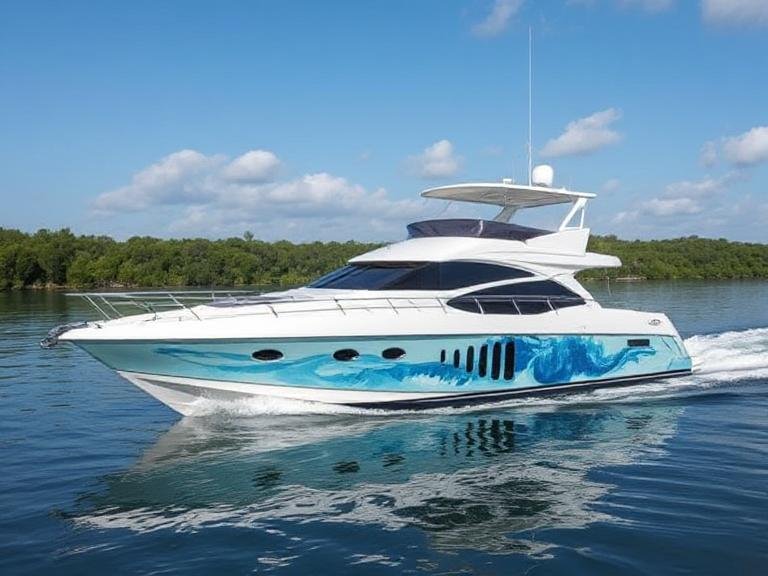 Solving the Carbon Conundrum for Cleaner Boating in 2025
Solving the Carbon Conundrum for Cleaner Boating in 2025
Boating is one of life’s great joys — there’s just something special about the freedom of the open water, the fresh breeze in your face, and the thrill of the journey. But as more people hit the water, there’s a growing concern we can’t overlook: carbon emissions from boats are adding to climate change.
That might sound like a big, scary issue — and in some ways, it is. But the good news is that boaters, manufacturers, and lawmakers are starting to take action. So, what does all this mean for everyday boaters like you and me? Let’s dive in and break it down.
What’s the “Carbon Conundrum” All About?
When we talk about the “carbon conundrum,” we’re basically referring to one tricky question: How do we keep enjoying the water without damaging the planet? Boats, just like cars, burn fuel. That process releases carbon dioxide (CO₂), which is one of the main gases heating up our planet.
While recreational boats may not be the largest carbon culprits, their emissions still add up — especially in popular boating areas. The problem is even bigger with older engines that burn fuel less efficiently and spew more pollutants into the air and water.
Did You Know?
- Older two-stroke engines can release up to 30% of their fuel unburned into the water.
- The recreational boating industry includes over 12 million registered boats in the U.S. alone.
Why Should Boaters Care About Emissions?
If you love boating, you probably love nature too. After all, what’s better than anchoring in a secluded cove, watching the sunset reflect off the water? But here’s the catch: higher carbon emissions are not just a global issue — they hit close to home.
Increased carbon in the atmosphere leads to warmer oceans, stronger storms, and rising sea levels. This can damage marine ecosystems, erode shorelines, and even limit access to your favorite boating spots due to extreme weather or tighter environmental regulations.
In short: protecting the water is about protecting the joy of boating itself.
What’s Being Done to Reduce Carbon Emissions from Boats?
Luckily, the boating industry isn’t sitting still. Here’s a look at the main ways emissions are being tackled:
1. Smarter Engines
Modern outboard engines are drastically cleaner and more fuel-efficient than those from just a decade ago. Manufacturers are investing in:
- Fuel-injection technology to reduce wasted fuel
- Four-stroke engines that burn cleaner than two-strokes
- Hybrid and electric outboards that use little or no fuel at all
Some electric outboards are already outperforming gas ones for certain uses, like fishing in calm waters or sailing dinghies. They’re quiet, emission-free, and surprisingly powerful.
2. Cleaner Fuels
Another piece of the puzzle is using better fuels. While boats mostly use gasoline with ethanol (like cars), this blend can be hard on marine engines.
But biofuels and synthetic fuels are being explored as alternatives that burn cleaner and cause less environmental damage. Some of these options can even be used in existing engines with minimal modifications.
3. Eco-Friendly Boat Design
Innovations in boat design are also helping cut emissions:
- Lighter hull materials reduce drag and improve fuel efficiency
- Solar-powered systems for running onboard electronics
- Hydrodynamic hulls that move through the water more smoothly
Think of it like switching from a gas-guzzling truck to a sleek hybrid car — same destination, but a lot less pollution along the way.
What Can YOU Do as a Boater?
You don’t have to reinvent your boating lifestyle overnight. But small changes can make a big difference. Here are a few easy steps you can take:
Switch to a Cleaner Engine
If you’re still running a two-stroke engine from the 90s, it may be time for an upgrade. New four-stroke or electric outboards not only slash emissions, but often save you money on fuel and maintenance too.
Practice Efficient Boating
Did you know how you operate your boat impacts fuel consumption and emissions?
- Keep your hull clean — barnacles increase drag.
- Don’t overload — extra weight eats gas.
- Plan smarter routes — less idling means fewer emissions.
Use Eco-Conscious Fueling Practices
Be careful not to spill gas when refueling. Even small spills can pollute water and release extra VOCs (volatile organic compounds) into the air.
Tip: Carry a fuel-absorbent pad during refueling, and check for leaks regularly.
What Does the Future of Boating Look Like?
Imagine this: You hop onto your boat with no noisy motor or smelly fumes. You glide across the water on electric power, drawing energy from solar panels. You don’t have to worry about pumping fuel or breathing in exhaust. Sounds futuristic, right? But it’s already happening.
Electric boats, solar-assisted systems, cleaner fuels, and efficient designs are becoming more mainstream each year. With more government incentives and eco-conscious boaters, the shift to green boating is picking up momentum.
Final Thoughts: Becoming a More Sustainable Boater
Let’s face it – no one wants to ruin the places we love to play. Cleaning up boating emissions isn’t just about saving the planet (though that’s a big win). It’s about saving the lifestyle we all enjoy — the peaceful anchorages, the thriving fisheries, the clear waters we dive into.
Whether you’re a weekend sailor, a die-hard angler, or just love tubing with the family — we all have a role to play. And the good news? There are more tools than ever to help us boat smarter, cleaner, and better.
So What’s Your Next Step?
Will you upgrade your engine? Tune up your boating habits? Try out a hybrid boat? Even one small change makes a difference.
The waters we love are worth it.
Key Takeaways
- Boating emissions contribute to climate change and harm marine environments.
- Upgrading engines, using cleaner fuels, and smarter boating practices help reduce your carbon footprint.
- The boating industry is investing in electric motors, biofuels, and sustainable design.
- Every boater can make changes to protect and preserve our waterways for future generations.
Ready to be part of the solution? Cleaner boating in 2025 is closer than you think.







